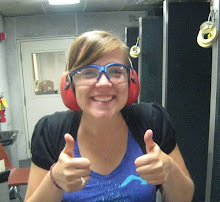I have to say that this last week was probably the most beneficial to me because we often worked with the lesson to learn it. I am definitely a learner who does better by putting it into practice. The AAAWWUBBIS lesson was something I never really thought about before. These are lessons you may know internally without really thinking about the actual rules. It made your realize how those subordinate clauses need a period after them and how AAAWWUBBIS makes that first half only a clause and it is no longer a complete sentence. I really enjoyed the lesson and I love keeping the workshop checklist written in a certain place so that one day I may use the lessons from it in my own classroom.
I was so thankful when the deadline was pushed back for the scrapbook because I often found sentences or commas I thought were incorrect but sometimes it would turn out that they weren’t really incorrect but rather it was a newspaper related preference. I am still really frustrated with finding examples because I suppose I do not have very much confidence that it is actually incorrect. I think looking at the example scrapbooks and asking questions really helped in class on Wednesday. I do have more ideas of what to look for now, but I still worry whether I am judging the mistake correctly. Overall, I really enjoyed class this week because I learned a lot about applying the lessons to my own writing and finding examples and common mistakes in others writing.
Question: How do you recognize an introductory clause? What rules do you have for identifying them?
Sunday, October 11, 2009
Sunday, October 4, 2009
FANBOYS and Punctuation
I am very happy we discussed compound sentences and using a comma before FANBOYS. Now that I think about it I think I only used commas before for, and, nor, but, or, yet, and so if I thought it was necessary. I never thought of them always needing a comma if they were used as a conjunction between two sentences. The lesson was really straightforward and I think I now understand how to punctuate these sentences. I was also interested in learning what a comma splice is because you hear people talk about them but I never really understood what they were. I understand now that they occur when two sentences are connected only with a comma and the FANBOYS are left out. However, I am not exactly sure what a complex sentence is now. I know the difference between simple and compound but what is complex?
Our discussion on the second half of Cordeira’s article I felt was more interesting than the first. It really brought out the teachers in our classroom. You could see how different we were in our teaching styles. Some thought it would be better to let students explore punctuation completely on their own and to not correct it because then they will never learn how to use it but rather will just correct whatever you say is wrong. Others like myself thought there had to be some line you draw as a teacher when you do correct them. How will they ever learn if they keep making the same mistake? It is important to let students explore with the language but at a point shouldn’t we step in and do our jobs as teachers and actually teach something? I was really frustrated with the article because the author kept saying punctuation is a “negotiation between the writer and reader” but then turned around and said there must be a common reference for the rules of punctuation. Is punctuation solely up to the author or do some forms of punctuation need to follow the rule?
My question for this week is, can you give me an example of a complex sentence, and what exactly makes it different from a compound sentence?
Our discussion on the second half of Cordeira’s article I felt was more interesting than the first. It really brought out the teachers in our classroom. You could see how different we were in our teaching styles. Some thought it would be better to let students explore punctuation completely on their own and to not correct it because then they will never learn how to use it but rather will just correct whatever you say is wrong. Others like myself thought there had to be some line you draw as a teacher when you do correct them. How will they ever learn if they keep making the same mistake? It is important to let students explore with the language but at a point shouldn’t we step in and do our jobs as teachers and actually teach something? I was really frustrated with the article because the author kept saying punctuation is a “negotiation between the writer and reader” but then turned around and said there must be a common reference for the rules of punctuation. Is punctuation solely up to the author or do some forms of punctuation need to follow the rule?
My question for this week is, can you give me an example of a complex sentence, and what exactly makes it different from a compound sentence?
Subscribe to:
Comments (Atom)
